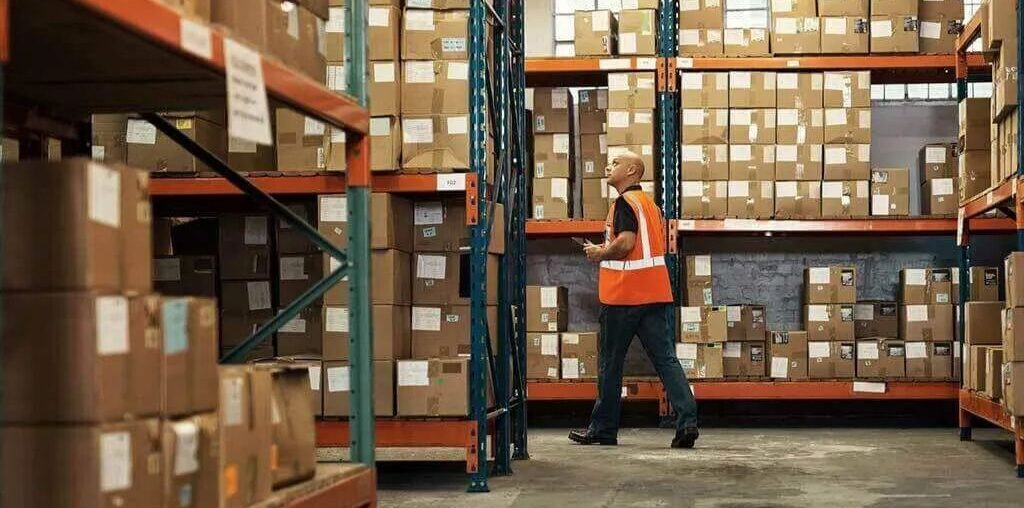Wholesale distribution plays a pivotal role in the supply chain, providing products from manufacturers to retailers or other businesses. Whether you’re an entrepreneur starting a business or an established company looking to expand, understanding Distributor can help you optimize your supply chain, reduce costs, and offer a broader range of products to your customers.
What is Wholesale Distribution?
Wholesale distribution involves buying goods in bulk directly from manufacturers or distributors at a discounted price and then reselling those goods in smaller quantities to retailers, businesses, or sometimes directly to consumers. The main goal of wholesale distributors is to act as intermediaries, ensuring that products get to the right places quickly and efficiently.
Wholesale distributors typically operate on a business-to-business (B2B) model, where they sell large quantities of goods to businesses rather than individual consumers. These distributors are vital to various industries, including retail, construction, food, electronics, and more.
How Wholesale Distribution Works
In the wholesale distribution process, several steps occur:
- Manufacturers or Suppliers: These are the companies that produce the goods. They may sell directly to consumers or through wholesalers. Manufacturers often rely on wholesale distributors to increase their market reach and lower the cost of individual sales.
- Wholesale Distributors: These intermediaries purchase goods in bulk from manufacturers. They benefit from economies of scale, which allows them to acquire products at lower prices. Distributors typically store goods in warehouses and keep a range of products in stock for quick delivery.
- Retailers or Businesses: Retailers or businesses are the customers of wholesale distributors. They buy smaller quantities of goods to sell directly to consumers. They rely on wholesale distributors for a reliable and cost-effective supply of products.
- Consumers: While wholesale distributors generally do not sell directly to consumers, their activities ultimately affect the availability and pricing of products that consumers purchase in stores.
Types of Wholesale Distributors
Wholesale Distributors can be categorized based on the types of products they deal with or the way they operate. Here are the common types of wholesale distributors:
- Merchant Wholesalers: These distributors buy goods from manufacturers and sell them to retailers or other businesses. They own the goods and bear the risk associated with holding inventory.
- Agents and Brokers: These wholesalers don’t own the products they sell. Instead, they work as intermediaries between manufacturers and buyers, typically earning a commission for facilitating the sale.
- Industrial Distributors: These wholesalers specialize in selling products used in industrial or business operations, such as machinery, tools, and chemicals. They often work directly with manufacturers to provide essential items to businesses.
- Drop Shipping Wholesalers: In this model, wholesalers don’t store inventory. Instead, when an order is placed by a retailer, the wholesaler ships the products directly to the retailer’s customer. This minimizes inventory costs for retailers.
Key Benefits of Wholesale Distribution
- Lower Prices: One of the most significant advantages of wholesale distribution is cost savings. By purchasing in bulk, distributors can negotiate better prices with manufacturers, passing these savings on to retailers or customers.
- Efficient Inventory Management: Wholesale distributors typically maintain vast inventories of various products. This allows them to fulfill large orders quickly, minimizing supply chain delays for retailers and businesses.
- Broad Product Selection: Distributors often carry an extensive product selection, enabling retailers to offer a wide range of items without needing to purchase directly from multiple manufacturers. This streamlines the process and improves efficiency.
- Scalability: As wholesalers operate with large volumes of products, they offer scalability for retailers. Businesses can easily increase or decrease their product inventory without being restricted by the need for large upfront investments.
- Flexible Shipping Options: Wholesale distributors usually offer various shipping options, from direct shipping to retailers to the ability to consolidate orders and provide bulk shipments. This flexibility helps businesses reduce logistics costs and improve efficiency.
Challenges in Wholesale Distribution
While wholesale distribution offers numerous advantages, it also presents some challenges that businesses must navigate:
- Competition: The wholesale market is highly competitive, with numerous distributors offering similar products. Businesses must find ways to differentiate themselves to attract customers.
- Inventory Management: While wholesale distributors benefit from economies of scale, they also need to manage large inventories. Balancing supply and demand to avoid overstocking or understocking can be tricky.
- Pricing Pressure: As the industry becomes more competitive, price wars can emerge, driving down margins. Wholesale distributors must constantly evaluate their pricing strategy to maintain profitability.
- Logistical Issues: Large volumes of goods require efficient logistics management. Delays, damaged goods, or inaccurate orders can disrupt the supply chain, affecting both the wholesaler and the retailer.
- Changes in Consumer Preferences: The rise of e-commerce and direct-to-consumer sales channels means that wholesalers must adapt quickly to changing market demands. They need to keep up with shifts in consumer behavior and technology to remain competitive.
The Importance of Building Relationships in Wholesale Distribution
A strong relationship between wholesalers, manufacturers, and retailers is crucial for success in wholesale distribution. Building and maintaining trust, effective communication, and collaborative partnerships will improve the overall supply chain and ensure that products move efficiently.
For Gt Distributors, establishing good relationships with suppliers can lead to better pricing, exclusive products, or priority access to new inventory. Similarly, wholesalers who cultivate solid ties with retailers can create long-term partnerships, ensuring consistent orders and reducing the likelihood of losing clients to competitors.
The Role of Technology in Wholesale Distribution
In today’s business world, technology plays an essential role in optimizing wholesale distribution. Key tools and technologies used by distributors include:
- Enterprise Resource Planning (ERP) Systems: These software tools help distributors manage inventory, sales, order processing, and financials in real time. ERPs improve efficiency, reduce errors, and allow businesses to track product performance.
- Customer Relationship Management (CRM) Systems: CRM software helps wholesalers manage interactions with retailers and clients, providing valuable insights into customer behavior and purchasing trends.
- E-Commerce Platforms: With the rise of online shopping, many wholesale distributors now operate e-commerce platforms, allowing retailers to place orders and track shipments seamlessly.
- Supply Chain Management Software: This technology helps wholesalers manage the flow of goods from suppliers to retailers, optimizing inventory levels, logistics, and order fulfillment.
- Data Analytics: By leveraging data analytics, wholesalers can gain insights into market trends, customer preferences, and product performance, helping them make more informed business decisions.
How to Choose the Right Wholesale Distributor
Selecting the right wholesale distributor is essential for the success of your business. Consider the following factors when evaluating potential distributors:
- Product Range: Choose a distributor that offers the products you need, with an extensive catalog that aligns with your market demands.
- Pricing: Compare prices across distributors to ensure you’re getting competitive rates. Factor in shipping costs, bulk discounts, and payment terms.
- Reliability and Reputation: Research the distributor’s reputation. Look for reviews and testimonials from other businesses to gauge their reliability and the quality of their service.
- Shipping and Delivery Options: Make sure the distributor offers reliable and efficient shipping methods to meet your business needs.
- Customer Support: Good customer service is essential in wholesale distribution. Ensure the distributor provides responsive support and is easy to reach in case of issues.
Conclusion
Wholesale distribution is a critical component of the supply chain, offering businesses a way to access products at lower prices and in bulk quantities. While it comes with challenges such as competition and inventory management, the benefits—like cost savings, efficiency, and scalability—make it an attractive model for many businesses. With the right Scp Distributors llc and effective use of technology, wholesale distribution can significantly improve a business’s ability to serve customers and grow in the marketplace. By understanding the ins and outs of wholesale distribution, businesses can make smarter decisions, optimize their supply chains, and ultimately increase profitability.

